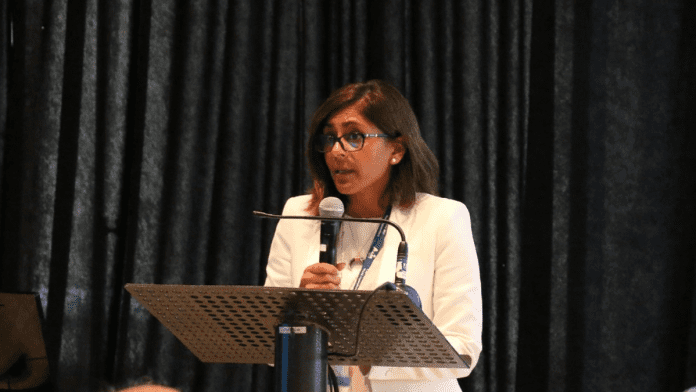News in brief:
– Yvonne Pinto, incoming head of the International Rice Research Institute, emphasises urgent need for innovative, eco-friendly practices to secure rice production amidst climate threats.
– AI-driven technologies and genetic innovations hold promise in revolutionising sustainable farming, but equitable partnerships and increased funding are essential for global collaboration in addressing agricultural challenges.
With the demand for rice soaring globally, the International Rice Research Institute’s (IRRI) incoming chief, Yvonne Pinto, emphasises the urgent need for innovations in rice production. The livelihoods of millions of small-scale farmers in the global South are at stake due to climate threats affecting this crucial staple.
Rice, sustaining over half of the world’s population for nearly 80% of their dietary needs, faces production challenges. Consumption has surged to 520.4 million metric tonnes in 2022-23, a 24% increase from 2008-2009. Developing countries contribute 95% to global rice output, but climate-induced risks are escalating in major producing nations like India, Vietnam, Thailand, and high-consuming regions like Africa.
Yvonne Pinto stresses the need to replace conventional practices, such as burning straw and chemical usage, with eco-friendly alternatives. These include repurposing straw for animal feed or compost, making them financially viable for farmers. Pinto advocates for incentivising the adoption of new technologies among farmers to transform production practices.

Microbial solutions and IRRI initiatives
Innovative approaches, such as microbial mixes for bio-degradation of rice straw in countries like Vietnam and Myanmar, are gaining traction. IRRI’s wet and dry rice systems, direct-seeded rice, and methane-reducing varieties showcase their commitment to sustainable practices. Pinto, set to become the first woman to lead institute, aims to further develop climate-resilient, nutritious, and productive rice varieties.
She sees the potential of AI-driven technologies in revolutionising farming. While acknowledging the power of AI in understanding weather patterns, soil conditions, and optimising yields, she urges a cautious approach to build trust around AI insights. AI and genetic innovations offer opportunities to combat undernourishment and malnourishment, potentially personalising nutrition to enhance human health.
Pinto underscores the importance of equitable partnerships between governments, private sectors, NGOs, and farmers for sustainable agriculture. As climate action faces budget challenges, CGIAR, a major agricultural research partnership, calls for increased funding to end hunger and combat climate change. Pinto, serving as CGIAR regional director, sees an opportunity to diversify funding sources to address pressing agricultural needs.



